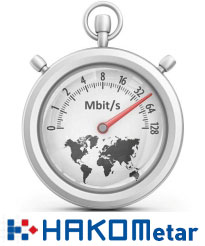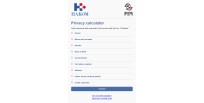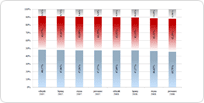Hakom - Croatian Post and Electronic Communications Agency
e-Agency
Users:
Cost Estimator
The Holder of Framework Programme
GIS portal
Privacy calculator
Application ''Quiz''
Market survey
HAKOM at the Meetings of the Working Group for Telecommunications and Information Society
NEWSProposal for a Regulation of the European Parliament and of the Council amending Regulation (EC) 531/2012 as regards rules for wholesale roaming markets was the topic discussed at the meeting. The adoption of this Regulation is a necessary precondition for complete elimination of retail roaming charges which is expected by June 2017.
ZAGREB, 13 January 2017 - On January 9 and 1, the meetings of Working Group for Telecommunications and Information Society were held in Brussels. The Working Group deals with issues related to information and communication technologies and infrastructure, the Internet and the creation of a single digital market in Europe. The central topic of the meeting was the discussion on the text related to the comments of the European Parliament (EP) on amendments to the Regulation of the European Parliament and of the Council on amending Regulation (EC) 531/2012 as regards rules for wholesale roaming markets.
The representative of the Croatian Regulatory Authority for Network Industries (HAKOM) Mislav Hebel participated in the meetings of the Working Group where the EP commentaries were discussed regarding the amendment of Proposal for a Regulation on roaming in public mobile communications networks within the Union. After the adoption of the policy of fair dealing (FUP) regarding the use of roaming services by the European Commission, the adoption of this Regulation is a precondition for the abolition of additional retail roaming charges which is expected by June 2017. At the meetings, the Member States representatives tried to reach joint positions regarding the provisions of the Regulation in order to adopt the views of the EU Council at the COREPER meeting held on January 13. A dialogue with the European Parliament and European Commission regarding the final text of the Proposal for a Regulation will be continued after taking positions
The Proposed Regulation of the European Parliament and of the Council establishing the European Electronic codes ECC was discussed at the meeting. The new Regulation aims to replace the existing four Regulation: the Framework Regulation, Access Regulation, Universal Service Regulation and the Authorization Regulation The reasons for the adoption of a new regulation is a demand that the electronic communications market can keep up pace with the technological progress of the market in the context of the Digital Single Market Strategy (DSM) and that all the rules related to the regulatory framework (the unification of four regulations) are put together.
# # #
For additional information please contact:
Croatian Regulatory Authority for Network Industries (HAKOM)
Roberta Frangeša Mihanovića 9
10110 Zagreb, Croatia
Tel. + 385 (0) 1 700 70 07
Fax + 385 (0)1 700 70 70
Media inquiries can be submitted online using HAKOM’s official website:
Registration required.
The representative of the Croatian Regulatory Authority for Network Industries (HAKOM) Mislav Hebel participated in the meetings of the Working Group where the EP commentaries were discussed regarding the amendment of Proposal for a Regulation on roaming in public mobile communications networks within the Union. After the adoption of the policy of fair dealing (FUP) regarding the use of roaming services by the European Commission, the adoption of this Regulation is a precondition for the abolition of additional retail roaming charges which is expected by June 2017. At the meetings, the Member States representatives tried to reach joint positions regarding the provisions of the Regulation in order to adopt the views of the EU Council at the COREPER meeting held on January 13. A dialogue with the European Parliament and European Commission regarding the final text of the Proposal for a Regulation will be continued after taking positions
The Proposed Regulation of the European Parliament and of the Council establishing the European Electronic codes ECC was discussed at the meeting. The new Regulation aims to replace the existing four Regulation: the Framework Regulation, Access Regulation, Universal Service Regulation and the Authorization Regulation The reasons for the adoption of a new regulation is a demand that the electronic communications market can keep up pace with the technological progress of the market in the context of the Digital Single Market Strategy (DSM) and that all the rules related to the regulatory framework (the unification of four regulations) are put together.
# # #
For additional information please contact:
Croatian Regulatory Authority for Network Industries (HAKOM)
Roberta Frangeša Mihanovića 9
10110 Zagreb, Croatia
Tel. + 385 (0) 1 700 70 07
Fax + 385 (0)1 700 70 70
Media inquiries can be submitted online using HAKOM’s official website:
Registration required.
ABOUT HAKOM: HAKOM (www.hakom.hr) - Croatian Regulatory Authority for Network Industries – ensures preconditions for a fair market competition, stable growth and environment for innovations in the electronic communications and postal services market. HAKOM protects users’ interests and the possibility of choice among various communications and postal services at affordable prices, defines sustainable competitive conditions for operators and service providers under fair conditions for return on investment, and provides support to economic growth, public services and the quality of life in the Republic of Croatia by using modern technologies. HAKOM’ strategic goals are: to promote regulation of the electronic communications and postal services market, to support growth of investments and innovations in the electronic communications and postal services market, to provide efficient use of limited resources, to accelerate the growth of broadband products and services, to provide affordable offers of communications and postal services, to provide protection and informing of users, to build an efficient and comprehensive information system, to define and implement efficient processes, and to acquire multi-disciplinary competencies in market regulation.












